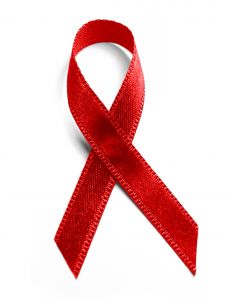It began in war-torn Sudan and ended in Adelaide earlier this month when Chan, an HIV positive Sudanese refugee, was jailed for endangering the lives of three women by having unprotected sex.
None of his victims have contracted HIV.
But all of them, who cheered as he was sentenced on July 11 to a minimum three years in jail, are bitterly angry he would risk their lives rather than deal with the shame and stigma of admitting he was HIV positive.
Born to a large Catholic family in Sudan's capital Khartoum, Chan's father was involved in politics and most of his siblings have been killed.
Public executions in his hometown were commonplace, scarring the boy at an early age.
"Very few of us could imagine the horror he has experienced," his lawyer, Geraldine Davison, told the court before Chan, 42, was sentenced to five years in prison with a non-parole period of three years.
Davison said Chan fled Sudan at the age of 20, and spent time working for the United Nations and in refugee camps, travelling through Rwanda, Congo, Mozambique, Cameroon and Tanzania.
In Rwanda, he counted skulls in a truck for the UN.
"For 10 years, he didn't know who was alive and who wasn't, including his own family," Davison said.
Chan came to Australia as a refugee in 1999, but as one horror chapter ended, another was set to begin.
He was diagnosed with HIV in March 2004.
The diagnosis was devastating, particularly as he never knew how he became infected, and Chan spiralled into depression, heavy drinking and self-harm.
"He was shocked and horrified. He had a significant detrimental impact effect on his mental health. That mental health has continued to deteriorate," Davison said.
"He began self mutilating. He began to bang his head and deliberately crashed his car into a tree in an attempt to kill himself."
Chan, who worked as an interpreter and community worker for Adelaide's migrant health and and migrant resource centre, and was also a recreation officer at Woomera detention centre, began to live recklessly.
"He lived life as though he didn't care about anyone or himself," his lawyer said.
He met the first woman whose life he endangered with unprotected sex in October 2003 at the Mars Bar in Adelaide.
He met the second woman months later at the African club. She later suffered a miscarriage.
Perhaps most tragic is Chan's third victim, a Sudanese woman he met in 2006 and who bore his child in October 2007.
Chan was arrested in February 2009 and pleaded guilty to endangering the womens' lives with unprotected sex between 2004 and 2007, knowing he was HIV positive.
All three of his victims spoke bitterly of Chan's betrayal in court.
"I find John Chan's indifference chilling. He refused to accept responsibility for my wellbeing," the first woman told the court in her victim impact statement.
The third woman said her former lover's selfish desire for a family endangered both her and her baby's life.
Despite both being HIV free, she now lives with the sting of rejection by the Sudanese community.
"They will not visit me or my child because they think I am infected," she said in a statement read to the court.
"He only wanted a boy to carry his name .... I do not want John Chan to ever see his son."
Davison told the court of Chan's desperate need for a family and his fear of being rejected by his community.
"It is difficult to understand the degree of shame, the degree of embarrassment that accompanies this disease," she said.
"He felt he couldn't tell anyone who was here."
"It is very much the view (in the African community) that if you have HIV, you will be dead within three months."
The Findon man, from Adelaide's west, sat impassively as Justice Ann Vanstone of the South Australian Supreme Court condemned him, saying his dishonesty and betrayal continued to have a profound effect.
The fact that none of his victims contracted the virus could not be viewed as mitigating, she added.
Melbourne University researcher Chris Lemoh, who works in refugee health and is researching HIV among Victoria's African communities, says the stigma associated with the disease is devastating.
"People (in the community) look at it as a deadly disease, as a highly contagious disease, one that is associated mainly with sexual immorality," he says.
"A lot of that comes from ... media and other messages in Africa."
Dr Lemoh says there is a stereotypical picture of HIV patients as either gay, promiscuous or drug users.
Perhaps Chan's trail of destruction can be understood as the action of a person unable to cope with the cultural weight of shame, stigma and secrecy surrounding HIV.
So huge was the burden, that even despite working as a community support worker, Chan was unable to reach out to others about his condition.
But there are lessons for health providers.
Dr Lemoh says family is important in African communities, and there is an imperative to make people aware that there are safe ways to procreate.
Educating doctors about dealing with refugee patients is also important.
"Doctors need to be aware of the social costs of that diagnosis and be sensitive to it," he says.
"If you don't respect your patient ... then somebody who is sensitive to fear, prejudice or stigma is going to react badly.
"There's lots of stigma associated with HIV against African people, and there's homophobia, and there's a whole of lot prejudices which occur together that all need to be addressed."








